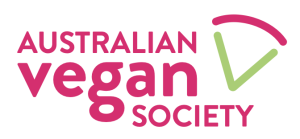Nutrition for Beginners
Thinking about going vegan but worried about nutrients? Don't stress! A well-balanced plant-based diet can give you everything you need to thrive. The key is to eat a variety of whole foods and get enough calories.
Here's a quick guide to the essentials:
Protein
No need to worry—beans, lentils, tofu, tempeh, seitan, quinoa, nuts and seeds are packed with protein. Eat a mix of these daily to get all essential amino acids.
Iron
Great sources: lentils, whole grains, tofu, nuts, seeds and leafy greens. Boost absorption by pairing them with vitamin C-rich foods (like citrus, capsicum or tomatoes).
Vitamin B12
B12 is vital for brain and nerve function but isn’t naturally found in plant foods. Vegans should take a B12 supplement or eat fortified foods (like plant milk, nutritional yeast or cereals).
Calcium
Many plant foods offer calcium that’s just as, if not more, absorbable than cow's milk. For strong bones, enjoy fortified plant milk and tofu, tahini, almonds and leafy greens like bok choy and kale.
Iodine
Supports thyroid health. Get it from iodised salt and seaweed (like nori and wakame), but don’t overdo kelp! A supplement may help if your intake is low.
Omega-3s
Essential for brain and heart health! Load up on flaxseeds, chia seeds, hemp seeds, walnuts and algae-based supplements for DHA and EPA.
Vitamin D
Sunshine is best, but if you can't get into the sun, or there's no sun around, go for fortified foods or a vegan D3 supplement to support bones and immunity.
Zinc
Supports immunity and healing. Find it in legumes, tofu, nuts, seeds and whole grains. Soaking and sprouting foods improve absorption.
With a little planning, a plant-based diet can meet all your needs. Need extra support? Consider a vegan-friendly multivitamin or consult a plant-based nutritionist.
For more tips, check out ProVeg's plant-based nutrition resources!
